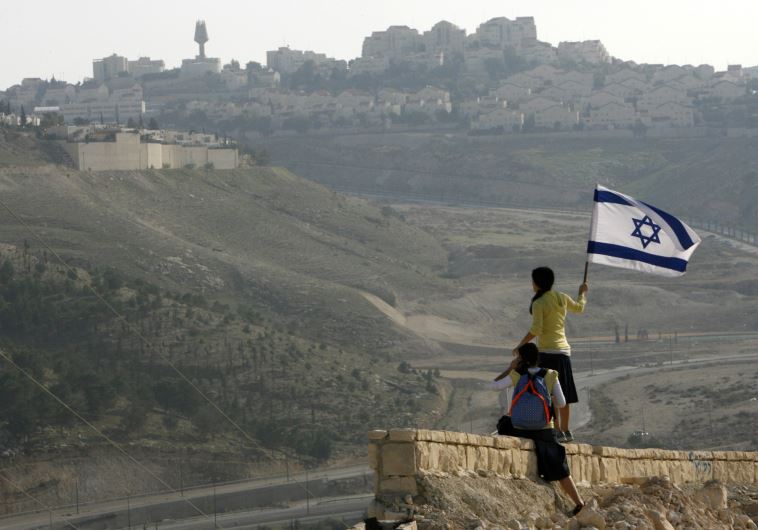Israeli settlements shut their gates to Palestinian workers in light of violence
The closure does not include the industrial areas or the Gush Etzion junction, where a Rami Levi supermarket is located.
 A girl holds an Israeli flag on a hilltop near the Maaleh Adumim settlementUpdated:
A girl holds an Israeli flag on a hilltop near the Maaleh Adumim settlementUpdated: